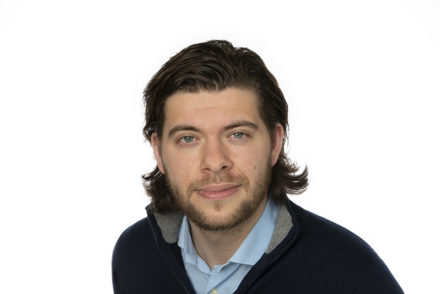Barbara Baarsma: ‘Growth is essential, but it must be green’
How can we continue to grow economically without exploiting our planet? This question was central during the lecture “Steering Towards Green Growth.” Keynote speaker Barbara Baarsma shared her insights on this issue. ‘We must strive for the most sustainable society possible.’

If growth is so bad for our planet, should we even aim to grow at all? ‘Yes, economic growth is necessary,’ says Barbara Baarsma, professor of Applied Economics at the University of Amsterdam and chief economist at PwC, last Thursday to a full Black Box. The type of growth Baarsma refers to is essential to offer future generations the same level of prosperity that we currently enjoy.
Growth is needed to cover the costs of aging, for example, and to fund the redistribution of Dutch wealth. Especially as long as we continue to pay for public services like education, healthcare, and the judiciary from collective resources. ‘But,’ Baarsma argues, ’this must come from green growth: growth that takes into account climate change and inequality of opportunity.’
Not continuing the same way
Baarsma explains three types of economic growth. Gray growth, or traditional economic growth. ‘We’ve done this for a very long time: growing without considering whether it fits within planetary boundaries, and thus you automatically exceed them. Gray growth advocates want to continue “comfortably” as we always have.’
‘Then there’s degrowth. People who advocate for this are convinced that economic contraction is necessary to stay within planetary boundaries.’ Baarsma adds: ‘This is a belief that has not been scientifically proven.’
Green growth is the third option. ‘Striving for the most sustainable society possible and growing within certain limits.’ Baarsma herself is an outspoken proponent of green growth, she tells the attentive audience.
Strong greening policies needed
‘I am in favor of green growth because I know for sure that if you advocate for contraction now, you will lose your electorate. Growth is important for the feeling of prosperity, for the sense of broad well-being.’

‘Moreover, I am very much in favor of working together with the degrowthers. Because we aim for the same thing, namely the greening of the economy, and that connects us. The difference is that degrowthers want contraction, and green growth advocates do not. Because without growth, the treasury becomes emptier, and thus there is no money to invest in things like education and healthcare.’
Money doesn’t buy happiness
So, is money the answer to everything? ‘Money itself doesn’t make you happy,’ Baarsma states. ‘I have done a lot of research on happiness and what explains the difference between people who are the happiest and people who indicate they are less happy. The determining factor is not money or income but the feeling that people have control over their lives.
‘And what do you need to gain control over your life? Access to the labor market, access to the housing market, education, healthcare, and so on. All services that are paid for through growth.’
Afraid of losing voters
To achieve greening, strong policies are needed, Baarsma knows. ‘And I don’t mean the policies that have been implemented in recent years, or those in the current government program. Not even the Green Deal, which is supposed to help the EU with the green transition. No, a much more far-reaching greening policy is needed.’
If politicians are afraid of losing voters with openly green policies, they can, according to Baarsma, also steer growth indirectly. ‘The government is currently intervening through the financial sector, for example, through banks and pension funds, so that they become gatekeepers of greening.
‘If the government doesn’t dare to say outright that we need to emit fewer greenhouse gases, they let the banks say it: that loan won’t go through because my carbon budget for this year is used up. This kind of indirect regulation has been quietly implemented by the government, without making headlines.’
The lecture “Steering Towards Green Growth” is part of the lecture series “Broad Prosperity,” initiated by the Broad Prosperity Program and Studium Genrale.






